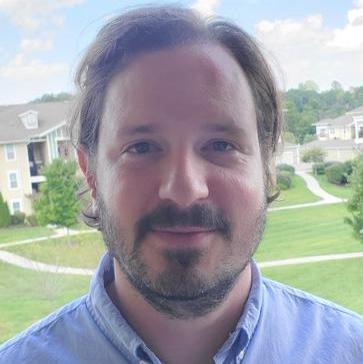Graduate Student Seminar
November 15, 2024
12:45 p.m. ET
Wean Hall 7500
November 15, 2024
12:45 p.m. ET
Wean Hall 7500
Autonomous research laboratories (also known as self-driving labs) accelerate the scientific process - letting scientists fail smarter, learn faster, and spend less resources in their studies. This is achieved by placing machine learning in control of automated lab equipment, i.e., putting machine learning in the driver’s seat. The user defines their goals and the machine learning then selects, performs, and analyzes experiments in a closed loop to home in on those goals. By integrating prior knowledge into the machine learning framework, even greater accelerations can be achieved. Knowledge sources include theory, computation, databases, and human intuition. In this talk, I will discuss NIST’s diverse set of autonomous labs for materials exploration and discovery. I will also discuss how integrating external knowledge boosts their performance.
 A. Gilad Kusne, Staff Scientist, National Institute of Standards and Technology (NIST); Adjunct professor, University of Maryland
A. Gilad Kusne, Staff Scientist, National Institute of Standards and Technology (NIST); Adjunct professor, University of MarylandKusne received his B.S., M.S., and Ph.D. degrees from Carnegie Mellon University. He is a Staff Scientist with the National Institute of Standards and Technology (NIST), Gaithersburg, Maryland, an adjunct professor with the University of Maryland, and a Fellow of the American Physical Society. His research is part of the White House’s Materials Genome Initiative at NIST, a project which aims to accelerate the discovery and optimization of advanced materials. He leads the machine learning team of an international, cross-disciplinary effort building autonomous research systems, with the goal of advancing solid state, soft, and biological materials. For these systems, machine learning performs experiment design, execution (in the lab and in silico), and analysis. He was twice awarded the NIST Bronze Award (highest internal award). He is also the lead founder and organizer of the annual Materials Informatics competition and the Machine Learning for Materials Research Bootcamp and Workshop (now on its 9th year)—educating next generation and mid-career material scientists in machine learning.
July 8 2025
1:00 PM ET
Materials Science and Engineering
"Uncovering the Driving Force of Thermal-Activated Grain Boundary Migration in Polycrystals," presented by Zipeng Xu
Doherty A310
July 29 2025
11:00 AM ET
Materials Science and Engineering
Graduate Programs Information Session
Learn more about the master's and doctoral programs in materials science and engineering at CMU.